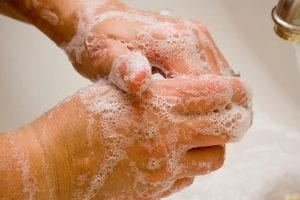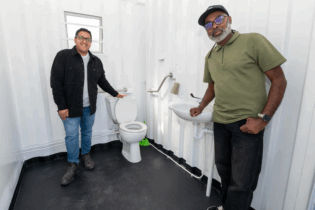For governments to achieve their Sustainable Development Goals (SDGs) by 2030 more resources need to be allocated for hygiene behaviour change.
This was one of the key messages from an interactive panel discussion held by WaterAid Southern Africa in Johannesburg recently. According to the organisation approaches to hygiene promotion have often failed to change entrenched unsafe behaviour, which includes open defecation, inadequate disposal of human waste and unhygienic handling of food and water. To inform the development of regional hygiene campaigns in Southern Africa, WaterAid conducted a Study on the State of Hygiene in Southern Africa. According to the results of the study the barriers to progress on hygiene in the region are largely interlinked.Did you know? Access to sanitation is higher in urban areas of Southern Africa, where between 16% and 77% of the population have access to at least basic sanitation.
“For coordination purposes, hygiene is most frequently considered under water and sanitation programmes as part of WASH. However, it is often deprioritised in hardware-focussed WASH sector coordination and review processes.”To address this issue WaterAid suggests that government-led sector coordination platform that centres specifically on bringing together hygiene stakeholders from all sectors should be established. Integration
“Effective integration of hygiene activities at country level in which education, nutrition, health and WASH policies, strategies and programmes interact for collective action is limited in the Southern Africa region.”According to the study this is closely linked to the absence of dedicated coordination mechanism for hygiene. To address this the study proposes that government’s learn about effective cross sector integration of hygiene that allows sectors to maximise their own impact through collaborative action.
Did you know? Handwashing access in the Southern Africa region is very low especially amongst rural populations – in five countries in the region the handwashing rate is less than 25% in rural areas.
“This bottleneck can only begin to be addressed when the profile of hygiene is raised by strengthening the existing evidence base and developing targeted advocacy to the policy-makers who ultimately influence allocations.”Monitoring and evaluation
“Access to robust local data on all hygiene components is a significant bottleneck across the region.”To overcome this WaterAid suggests that action is needed to better include hygiene components in routine monitoring, and to ensure that hygiene data is presented and analysed during sector reviews that prioritise hygiene as a key determinant of WASH and health programmes.
Did you know? For households in the region that practice drinking water treatment, boiling or chlorine disinfection are by far the most reported methods.







